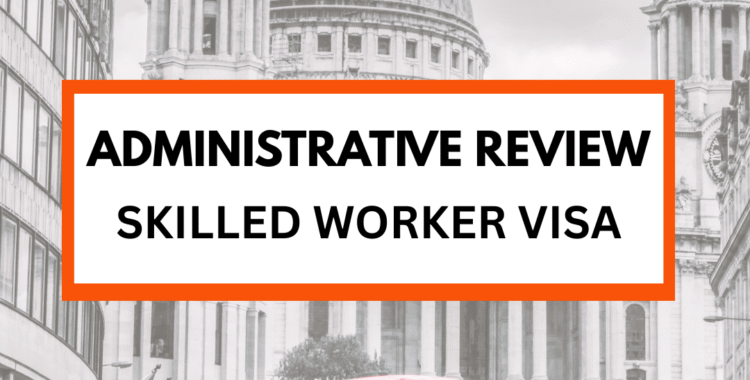Evidential flexibility – administrative review – working visas
![]()
A recent case in the Upper Immigration Tribunal called “Ganeshamoorthy” summarised the law and created new caselaw on some important issues.
Mr Ganeshamoorthy is a Sri Lankan national who applied to come to the UK on a Skilled Worker visa; he had been sponsored for a job as a retail manager. His application was refused and he applied for administrative review of the decision but the administrative review application was also unsuccessful. Not to be deterred he applied for judicial review to the Upper Immigration Tribunal. The UT accepted the case and gave permission for it to proceed.
The reason for refusal was that he had passed the wrong English language test. The requirement was to pass a certain type of IELTS test but he had passed the wrong IELTS test. So the decision-maker (the entry clearance officer (ECO)) had refused his application.
Was this decision fair or legally correct? Well, not necessarily. The Home Office has published policies about “evidential flexibility”, which had not been adhered to. Evidential flexibility works in such a way that in some circumstances if a visa application has some sort of defect the decision-maker should write to the applicant and ask them to provide a document that was missing or perhaps a document in a more correct form.
The current policy is quite helpful for applicants (and more helpful than it used to be): in some situations the decision-maker should “normally” request the document in question, and this word is important. If in a specified situation the decision-maker does not do this, and they go ahead and refuse the application, this may be an unlawful decision.
This was what happened in this case, but Mr Ganeshamoorthy had pre-emptively enclosed a copy of the correct certificate with his administrative review application, so the new certificate was already in front of the administrative review decision-maker. The Upper Tribunal judge held that the refusal of the visa application was unlawful and also that the refusal of the administrative review application was unlawful. So Mr Ganeshamoorthy won his case.
But that was not the end of it. In his visa application Mr Ganeshamoorthy (or more accurately his lawyers) had asked the ECO, if they decided to refuse the application, to reconsider the application “outside the rules”: ie to reconsider the application on a free-standing basis relying purely on discretion rather than adherence to the immigration rules.
It is always possible to ask the Home Office/UKVI to exercise discretion in this way – although whether they will grant the application on this basis is very far from certain. But the caselaw says that if the applicant asks them to reconsider the application on a discretionary basis they have to go through the exercise, and it follows that in a refusal decision they have to state that they have done so, albeit in many cases the application will remain refused.
But in this case there was nothing in the visa refusal decision to say that they had gone through the exercise. To put it short, and after some detailed analysis, the Upper Tribunal judge said that this was unlawful as well, so Mr Ganeshamoorthy won double, or triple, depending on how you count it.
If you are involved in any issues relating to the above we at GSN Immigration can give you our best advice and assistance.
Oliver Westmoreland
Senior Immigration Lawyer



